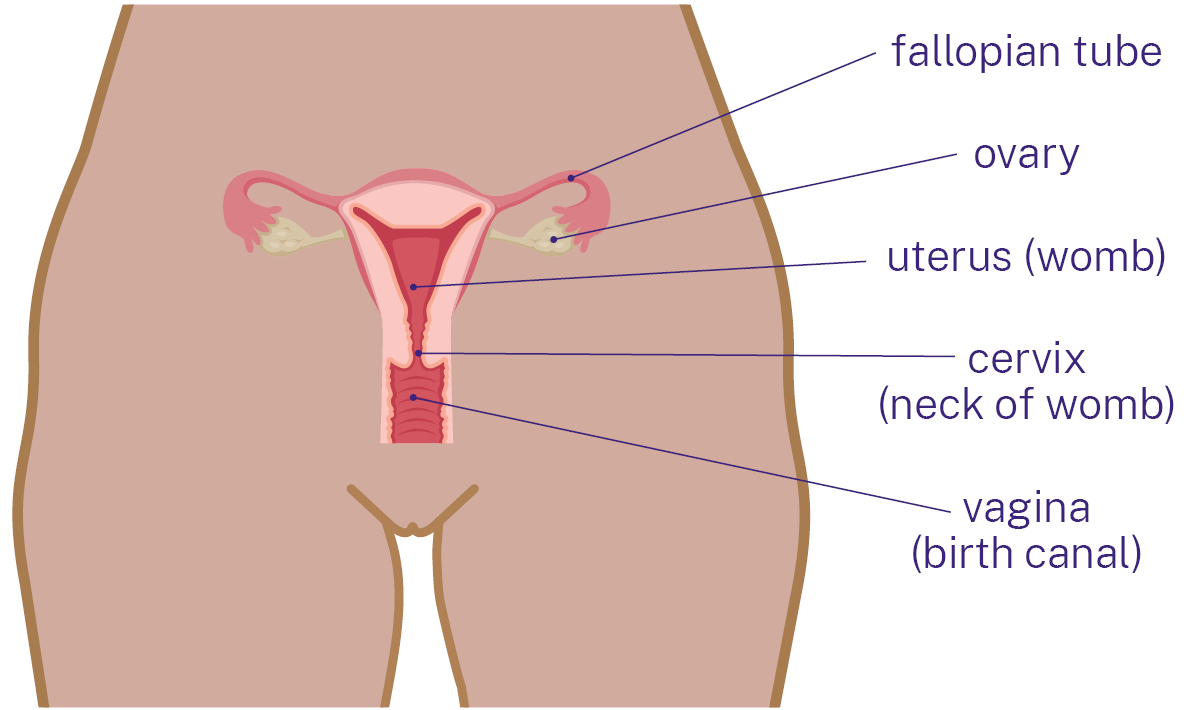What is cervical cancer?
Cervical cancer is cancer in the cells of the cervix. The cervix is part of the female reproductive system. It connects the vagina to the uterus (womb).

What causes cervical cancer?
The human papillomavirus (HPV) is a common infection that causes nearly all cervical cancer.
HPV spreads through sexual activity. Most people won't know they have had HPV. Your immune system usually clears HPV in one to two years and it will not turn into cancer.
But, if HPV stays in the body for a long time, it can cause changes in the cells. Over many years (10-15 years), these changes can lead to cervical cancer.
The Cervical Screening Test can prevent cervical cancer
The Cervical Screening Test is a simple and quick test. It checks for HPV and can prevent cervical cancer. It only takes a few minutes.
Women aged 25– to 74 should have a Cervical Screening Test every five years.
If you have never had cervical screening, or it has been 5 years since your last test, book an appointment to have the test. It could save your life.
Find out when you are due for your next Test. Call the National Cancer Screening Register (NCSR) on 1800 627 701 or visit the NCSR Participant Portal via your myGov account at www.ncsr.gov.au. Or ask your midwife or doctor to check for you.
You have two choices for your test. Both choices are safe during pregnancy:
1. Self- collection: You can collect your own sample from your vagina using a swab. You will be given a swab, instructions and a private place where you can collect your sample.
2. Healthcare provider collection: Your midwife or doctor can collect a sample from your cervix using an instrument called a speculum.
The Cervical Screening Test is free for women aged 25– to 74 who have Medicare. Some doctors may charge a fee for their services. Ask about any extra costs when you book your test.
Your results from cervical screening
After your Cervical Screening Test, the sample will be sent away to check for HPV. If HPV is found, the Test will then look for any changes in your cervical cells. If you chose to collect your own sample, you may need to have a healthcare provider collect the next sample for you. Your midwife or doctor will give you your results when they are ready, usually in a few weeks. Find more information about your results.
Most people will be asked to have their next Test in 5 years. Some people will need another Test in 12 months. A few people will be asked to see a specialist doctor for a different test.
Remember that an HPV infection usually does not turn into cervical cancer. It takes a long time for an HPV infection to cause cell changes that may lead to cervical cancer (around 10-15 years). It is not common.
It is important to talk to your midwife or doctor if you have any unusual symptoms, such as:
- Bleeding from your vagina after sex or between periods.
- Unexplained ongoing vaginal discharge.
- Unexplained pain during sex.
These symptoms may not mean you have cervical cancer, but they could be signs of other health problems.

You can safely have cervical screening at any time during your pregnancy
If you are due or have never had cervical screening and are 25 or over, pregnancy is a good time to have cervical screening.
After your baby is born, it can be hard to find time for your own health checks. It is a good idea to get the test done before your baby arrives during your pregnancy care appointments.
You can choose to collect your own sample in private with a vaginal swab, or your midwife or doctor can collect it for you.
Ask your midwife or doctor about cervical screening at your next appointment.

You can prevent cervical cancer. Stay healthy for you and your family by keeping up-to-date with your cervical screening - it could save your life.
Want to know more about cervical screening?
Find out more about cervical screening, information translated into other languages and access other resources on the National Cervical Screening Program website.






